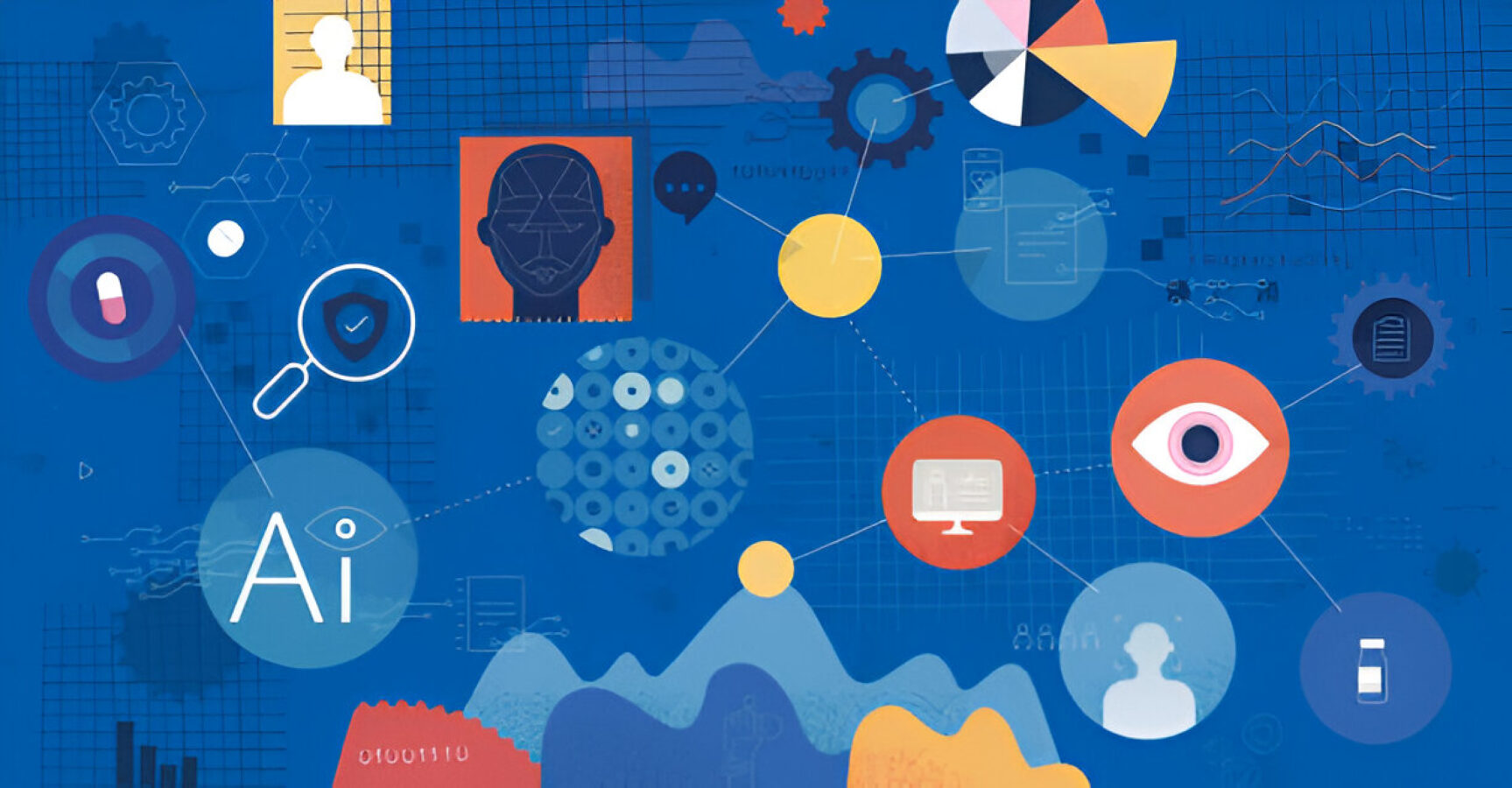
The Rise of AI-Powered Ad Targeting in Kenya
Kenya’s digital transformation in marketing is reshaping how businesses engage with consumers. With internet penetration in Kenya exceeding 50% and mobile devices accounting for over 90% of online traffic, digital advertising Kenya is a critical growth driver. AI-powered ad targeting leverages machine learning and data analytics to deliver highly relevant ads to specific audience segments, transforming Kenyan marketing trends 2025. For Kenyan brands, from startups in Nairobi to agribusinesses in Eldoret, AI offers a cost-effective advertising solution that maximizes marketing ROI while aligning with Kenya’s consumer behavior.
AI’s ability to analyze vast datasets—such as browsing habits, purchase history, and social media interactions—enables brands to craft personalized advertising campaigns that resonate with consumers. This is particularly impactful in Kenya, where cultural diversity and regional preferences demand tailored approaches. By integrating AI marketing tools, Kenyan brands can move beyond generic ads to create meaningful connections with their target audience in Kenya.
Why AI-Powered Ad Targeting Matters
- Precision Targeting: AI analyzes consumer data analytics to identify specific demographics, interests, and behaviors, ensuring ads reach the right audience.
- Cost Efficiency: For SME marketing Kenya, AI optimizes ad spend by focusing on high-potential customers, reducing waste and enhancing marketing ROI.
- Personalization at Scale: AI enables brands to deliver personalized advertising to thousands of users simultaneously, improving customer engagement Kenya.
- Adaptability: AI adapts to real-time changes in Kenya’s consumer behavior, ensuring campaigns remain relevant in a dynamic market.
Strategies for Kenyan Brands to Leverage AI-Powered Ad Targeting
To capitalize on AI-powered ad targeting, Kenyan brands must adopt data-driven strategies that align with Kenyan marketing trends 2025. Below are actionable approaches to personalize advertising and drive business growth Kenya.

- Harness Consumer Data Analytics for Customer Segmentation
Customer segmentation is the cornerstone of personalized advertising. AI tools like Google Ads, Meta’s Ad Manager, or local platforms like Sendy analyze consumer data analytics to segment audiences based on age, location, interests, and purchasing behavior. For example:
- A Nairobi-based fashion brand could use AI to target young professionals with ads for trendy outfits, using keywords like “nguo za mitindo Nairobi” (trendy clothes Nairobi).
- A Kisumu-based agribusiness might target rural farmers with ads for affordable farm inputs, tailored to seasonal needs.
By understanding Kenya’s consumer behavior, brands can create hyper-specific segments, such as urban millennials or rural smallholder farmers, ensuring ads are relevant and engaging.
- Optimize for Mobile-First Advertising
With mobile advertising Kenya dominating the digital space, AI tools optimize campaigns for mobile users. AI marketing tools analyze device usage patterns, screen sizes, and app preferences to deliver ads that align with mobile-first advertising principles. For instance, AI can prioritize short-form video ads on platforms like TikTok or Instagram, which resonate with Kenya’s youth.
Kenyan brands can also use AI to optimize ad formats for low-bandwidth environments, ensuring accessibility in rural areas with limited internet penetration in Kenya. For example, a Mombasa-based travel agency could use AI to serve lightweight, text-based ads to rural consumers, promoting coastal tours with compelling CTAs.
- Leverage Behavioral Targeting for Personalized Experiences
Behavioral targeting uses AI to analyze user interactions—such as search queries, website visits, or social media likes—to predict preferences and deliver tailored ads. For SME marketing Kenya, this is a game-changer. A small Nairobi café could use AI to target users who frequently search for “best coffee shops near me” with ads for specialty brews, increasing foot traffic.
AI also enables retargeting campaigns, re-engaging users who have interacted with a brand but haven’t converted. For instance, an e-commerce platform in Kenya could retarget users who abandoned their carts with personalized discounts, boosting customer engagement Kenya and conversions.
- Integrate AI with Social Media and WhatsApp Marketing
Social media advertising platforms like Instagram, Facebook, and TikTok are central to digital advertising Kenya. AI enhances these platforms by optimizing ad placements, bidding strategies, and creative content. For example, AI can determine the best time to display an ad to a Nairobi-based professional or a Kisumu-based student, maximizing click-through rates.
Additionally, integrating AI with WhatsApp marketing Kenya allows brands to deliver personalized advertising through direct messaging. The Business WhatsApp API, combined with AI chatbots, can send targeted promotions or respond to customer inquiries in real time. A Nakuru-based retailer, for instance, could use AI to send personalized WhatsApp messages about new stock arrivals to loyal customers, enhancing customer engagement Kenya.
- Use Predictive Analytics for Campaign Optimization
Predictive analytics leverages AI to forecast trends and consumer behavior, enabling Kenyan brands to stay ahead of Kenyan marketing trends 2025. By analyzing historical data, AI can predict which products will trend during festive seasons or which demographics are most likely to engage with specific campaigns.
For example, a Kenyan e-commerce platform could use predictive analytics to identify rising demand for electronics during back-to-school periods, targeting students with ads for affordable laptops. This proactive approach ensures campaigns align with evolving Kenya’s consumer behavior, maximizing marketing ROI.
Benefits of AI-Powered Ad Targeting for Kenyan Brands
AI-powered ad targeting offers several advantages for Kenyan brands, particularly SMEs:
- Cost-Effective Advertising: AI optimizes ad budgets by targeting high-value audiences, reducing costs for SME marketing Kenya.
- Enhanced Personalization: Tailored ads improve customer engagement Kenya, fostering loyalty and repeat business.
- Scalability: AI enables brands to manage large-scale campaigns without sacrificing personalization, supporting business growth Kenya.
- Data-Driven Insights: Consumer data analytics provide actionable insights, helping brands refine strategies and stay competitive.

Challenges and Solutions
Despite its potential, AI-powered ad targeting comes with challenges:
- Data Privacy Concerns: With Kenya’s Data Protection Act in place, brands must ensure compliance when collecting consumer data analytics. Transparent opt-in policies and secure data handling can build trust.
- Technical Expertise: SMEs may lack the skills to implement AI marketing tools. Partnering with local agencies or using user-friendly platforms like Google Ads can bridge this gap.
- Ad Fatigue: Over-targeting can overwhelm consumers. AI can mitigate this by optimizing ad frequency and varying creative content to maintain engagement.
The Role of AI in Kenya’s Consumer Behavior
Kenya’s consumer behavior is diverse, shaped by urban-rural divides, cultural preferences, and economic factors. AI helps Kenyan brands navigate this complexity by identifying patterns and tailoring campaigns. For instance, urban consumers in Nairobi may respond to ads for tech gadgets, while rural consumers in Kitui may prioritize agricultural products. AI’s ability to analyze target audience in Kenya ensures ads resonate with specific needs and aspirations.

Moreover, predictive analytics can anticipate shifts in consumer preferences, such as increased demand for eco-friendly products or mobile payment solutions like M-Pesa. By aligning with these trends, brands can position themselves as leaders in Kenya’s digital market.
The Future of AI-Powered Ad Targeting in Kenya
As Kenyan marketing trends 2025 evolve, AI-powered ad targeting will become even more sophisticated. Key developments include:
- Voice and Visual Search: AI will optimize ads for voice queries in Swahili and English, aligning with mobile-first advertising trends.
- Augmented Reality (AR) Ads: Brands can use AI to create immersive AR experiences, such as virtual try-ons for fashion retailers.
- Cross-Platform Integration: AI will seamlessly integrate social media advertising, WhatsApp marketing Kenya, and other channels for cohesive campaigns.
For SMEs, the democratization of AI marketing tools through affordable platforms like Google Ads or local solutions will level the playing field, enabling small brands to compete with larger players in digital advertising Kenya.
Measuring Success in AI-Powered Ad Targeting
To ensure marketing ROI, Kenyan brands must track key metrics:
- Click-Through Rates (CTR): Measure how often users engage with ads.
- Conversion Rates: Track purchases or sign-ups driven by targeted campaigns.
- Customer Lifetime Value (CLV): Assess the long-term impact of personalized advertising on customer engagement Kenya.
- Ad Spend Efficiency: Use AI analytics to monitor cost-per-click and return on ad spend.
For example, a Mombasa-based tour operator could use AI to track which ads for coastal safaris generate the most bookings, refining campaigns for higher marketing ROI.
Conclusion
AI-powered ad targeting is revolutionizing digital advertising Kenya, offering Kenyan brands a powerful tool to personalize campaigns and drive business growth Kenya. By leveraging consumer data analytics, customer segmentation, and predictive analytics, brands can deliver personalized advertising that resonates with the target audience in Kenya. From SME marketing Kenya to large enterprises, AI enables cost-effective advertising that maximizes marketing ROI while aligning with Kenya’s consumer behavior. As Kenyan marketing trends 2025 continue to evolve, brands that embrace AI marketing tools will lead the charge, transforming Kenya’s digital market and building lasting connections with consumers in a dynamic, mobile-first world.